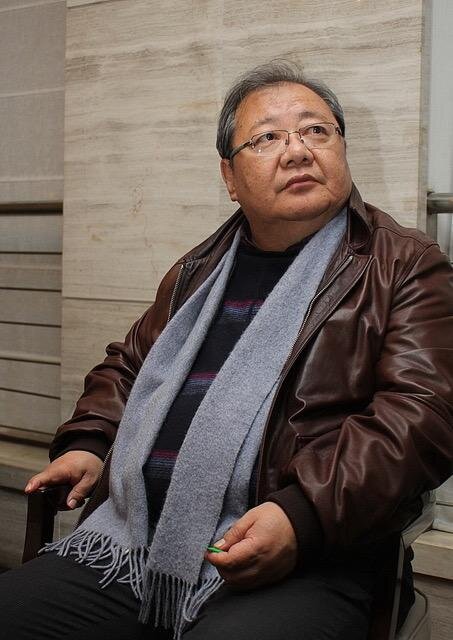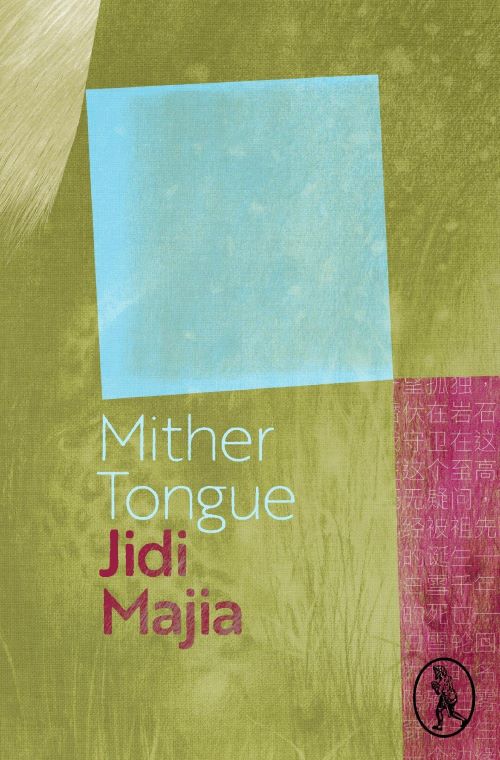ProemBy night I’m from the Big Dipper’s seven stars,By day I return to the soil of my tribe,By luck I got hold of pitch to burn,Watch me illuminate life and death with it.1I grab hold of the salt in language;It feels like getting an electric shock.2Aside from the chorus of ranged mountains,In the darkness there’s a murmurOf a mouth harp’s bamboo reed.3I didn’t grab hold of tradition;It’s behind me. Even extended by shadowsMy arms weren’t long enough.4In a leather drinking bowl is a smear;It’s hard for me to wipe away;No wonder someone sends rainfall from the skyTo rinse me clean.5A crack suddenly appearedIn the storied sword that hung on the wall.The bimo says he can divide bane and blessing,But not the workings of impermanence.(bimo -hereditary priest)80Proverbs come to life in a pitcher of wine;Every sentence has the flavour of flames.83My mother tongue sobs in the darkness;Its wings had to pass through the needle’s eye of dawn. 序诗黑夜里我是北斗七星,白天又回到了部族的土地。幸运让我抓住了燃烧的松明,你看我把生和死都已照亮。一我握住了语言的盐,犹如触电。二群山的合唱不是一切。一把竹质的口弦,在黑暗中低吟。三我没有抓住传统,在我的身后。我的身臂不够长,有一截是影子。四我无法擦掉,牛皮碗中的一点污迹。难怪有人从空中泼下大雨,在把我冲洗。五挂在墙上的宝刀,突然断裂了。毕摩告诉我,他能占卜凶吉,却不能预言无常。八十格言在酒樽中复活,每一句都有火焰的滋味。八十三我的母语在黑暗里哭泣,它的翅膀穿越了黎明的针孔。 ForetochtsBi nicht A’m Da Ploo’s seeven starns,Bi day I come back tae wir ain calf-grund.Bi luck I got hadd o some cooch ta burn,See mi torch licht up life an daeth wi hit.1I yock a hadd o da saat ithin language;Hit feels laek da tift o a electric shock.2Forbye da music o da mountain taps,I da mirk der a murmurO a bamboo reed vimmerin ithin a trump.3I didna hadd on tae tradition;Hit’s ahint me. Even med langer bi shadows,Mi airms wirna lang enyoch.4A ledder drinkin bowl is uggled;Hit’s herd for me ta dicht dirt awa;Nae winder someen sends rain fae da liftTa rensh me clean.5In a stowen dunt da sword o tales dathung apö da waa wis sklent.Da bimo says he can wirk oot bane an sainin,But no da wyes o whit aye jöst wavvels.80Wise wirds come ta life ithin a jug o wine;Ivery sayin hes da keetchin o flames.83Mi midder tongue gowls i da mirk;Hits wings hed ta win trowe da needle’s een o dimriv.
The Enduring One (excerpt)
Feature Date
- November 14, 2022
Series
- Translation
Selected By
Share This Poem
Print This Poem
“The Enduring One” from MITHER TONGUE: by Jidi Majia, translated by Denis Mair & Christine De Luca, edited by Gerry Loose.
Published by Vagabond Voices on April 05, 2021.
English Copyright © 2021 by Denis Mair.
All rights reserved.
Reproduced by Poetry Daily with permission.

Jidi Majia’s work, while translated into other European and Asian languages, has never previously been available in the English-speaking world. Mither Tongue is however a unique introduction in both Scots and English to the work of this eminent ethnic poet from China’s Sichuan region.
He has published numerous poetic anthologies since the 1980s and has won national literature awards, and is considered one of the greatest poets amongst the minorities in China. He is the President of the China Minority Literary Association. His themes, while embedded in his Nuosu culture, are timely explorations of what it means to be at one with nature and his fellow humans.
He writes with humility and compassion, with a wide-ranging knowledge of all Chinese literatures across the dynasties and embracing present-day Chinese poetics. His assimilation of the world’s great literatures, together with expertise in Chinese and Nuosu literatures leads to an astonishing tour de force in which everything gains this dual orientation: on one hand it is rooted in the land-based, tribal sensibility of the Nuosu, and on the other hand it is characterised by expansive subjectivity reaching out into the modern world.

Denis Mair holds an MA in Chinese from Ohio State University and has taught at the University of Pennsylvania. His translations of modern Chinese poetry include works by Jidi Majia (Oklahoma University Press), Mai Cheng (Shearsman Books), Meng Lang (Waves Culture Media) and Luo Ying (Visor Press). Denis Mair’s own book of poetry, Man Cut in Wood, was published by Valley Contemporary Poets in Los Angeles.
Christine De Luca was born and brought up in Shetland, Scotland and writes in both English and Shaetlan (Shetlandic). To date, she has had eight poetry collections published, several winning or shortlisted for awards. Her most recent collection is Veeve (Mariscat Press, Edinburgh, 2021). Beyond that her poems have been an integral part of several collaborations, most recently Paolozzi at Large in Edinburgh (Luath Press, Edinburgh, 2018) and – with the artist Victoria Crowe – Another Time, Another Place (Scottish Gallery, Edinburgh 2021). Currently she is collaborating with the artist Brigid Collins.
Over the years she has won several awards for her poetry and her work also appears in many anthologies as well as The Poetry Archive. She has been active in translation projects, particularly with Nordic poets, and five bi-lingual collections of her poems have been published – French, Italian, Icelandic, Norwegian and English. Her Shaetlan version of Le Petit Prince has just been published by edition tintenfass, Germany.
In 2014 she was invited to become the Edinburgh Makar (laureate), a role she held until 2017. She is also a member of the Edinburgh-based Shore Poets, a group which organises monthly poetry and music events in the city.
Christine is also a founding member of Hansel Cooperative Press which publishes work created in Orkney and Shetland, often involving artists.
She also enjoys collaborating with musicians, most notably with composer and jazz saxophonist Tommy Smith, and her words have frequently been set to music.
Her second novel The Trials of Mary Johnsdaughter has recently been published by Luath Press (Edinburgh) 2022.

Glasgow, Lanarkshire
Scotland
This collection of Jidi Majia’s poetry in Chinese and Nuosu (a lesser-spoken language in China, though there are around two and a half million speakers) has been translated into the three strands of the Scots language: Lallans by Stuart Paterson, Doric by Sheena Blackhall and Shetlandic by Christine de Luca. These translations will be face-to-face with an English translation by the eminent translator from Chinese, Denis Mair, who will also provide a preface on the context of Jidi Majia’s heritage and poetry.
Jidi Majia’s Scots translators have undoubtedly brought his vitality into alignment with the power of the Scots tongues, as does Denis Mair’s excellent and erudite rendering into English. Aimed at two linguistic communities and coming from two linguistic communities at the other side of the planet, this collection presents a perfect symmetry in a globalized world where we need a dialogue not only between the powerful but also and perhaps even more rewardingly between the local and marginalized. The infinite is often to be encountered in the circumscribed.
Poetry Daily Depends on You
With your support, we make reading the best contemporary poetry a treasured daily experience. Consider a contribution today.



